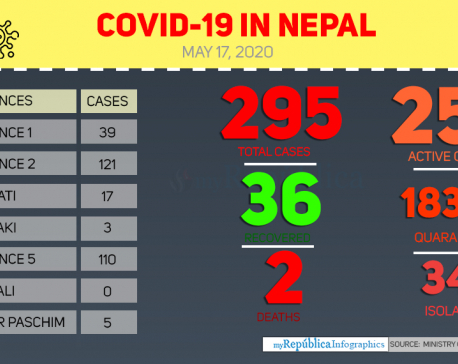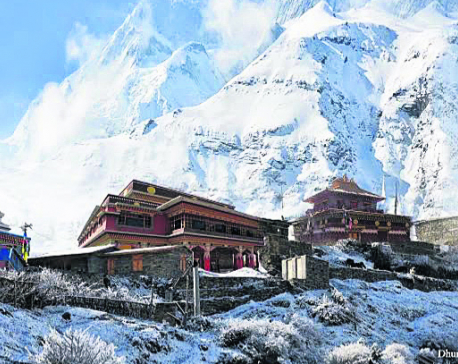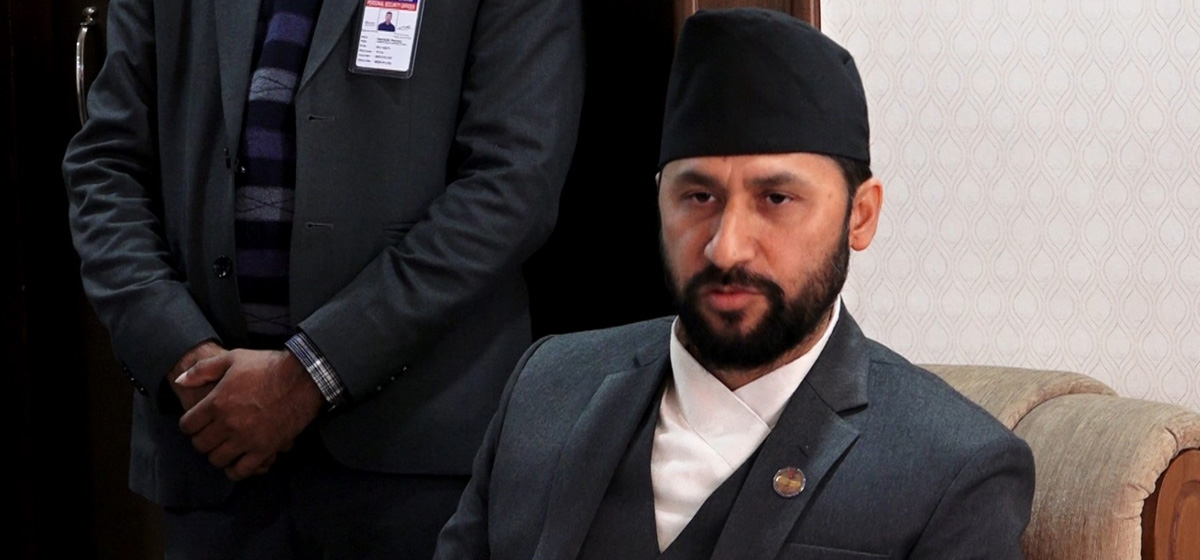
OR

More from Author
As offices in Nepal have been facing several server downs every single day, cloud computing can be a reliable option to provide services to the people.
Every now and then, people end up failing to get their work done from the government offices because their server is down. Not all Nepalis know what server. Officers explain by saying ‘computer is not working’, they have to come back another day, and only if they are lucky enough, their work will be done.
The fundamental right of consumers to receive quality service is connected with ‘luck’ which is irrational. There is a high need for providing expert consultation to service providers about the importance of service delivery on time, and to the receiver (general citizens) that services not being provided at the exact time is unacceptable and they should not be tolerating it.
Except for a handful of people who understand servers being down, others have no interest in understanding the problem and finding the solution. This mentality is a virus of our governance system which affects not only one office and an individual but the whole system.
In this rapidly moving world of digitization, it is important that everyone understand the basic concept of servers. I this article, I explain the idea of servers in the simplest possible manner so that next time a service receiver from a non-technical background goes to a government office they can speak up for their basic rights.
What is a server?
A server is a special computer that provides services. It is a computer linked with all the computers in the office within a network that stores data, information, and everything that is needed in the specific office. For example, the licensing department is responsible for issuing, renewing, or dismissing the license of millions of individuals. All the information of the consumers is stored in that server and every time a client computer in a network adds or asks for information, it is automatically stored or provided by the server.
Few big private hospitals also store information about an individual’s health details and when the same individual goes to the hospital, his/her health history is already present there. All these are stored in the server computer which is accessible only by the authority and administration. A server computer needs proper care and management. There are some fundamental criteria that must be fulfilled in order to keep the server up and running.
The first criterion is an uninterrupted power supply, ubiquitous network connection, physical security that includes security from theft, cold and direct sunlight etc. Server computers need to be safeguarded against mice as the wires could be devoured and other things such as hard disk failure, CPU crash due to load, motherboard failure, memory crash also create problems in its functioning. It is important to designate dedicated employees especially to safeguard and manage the physical servers.
With rapid development in technology, there is also an increase in the number of digital services. The concept of server computers arose only in the 90s and since then, it has been progressing and being updated.
If we look back to prehistory, our forefathers used to carve rocks and woods to write information, some of which can be found in the history museums all across the world. In fact, storage devices such as floppy disks, memory card, punch card, punch tape, disc etc from recent history can also be found in museums now.
Let’s move with time
The system in the world is rapidly changing and there is a high need for us to adapt to modern ways and configure the current functions to keep ourselves moving. The concept of digital governance is also in peak as the system-oriented services have high chances of accuracy and transparency over manual works. The government of Nepal has also been trying to move towards digitization in a full-fledged manner. However, infrastructural hurdles, commission and corruption have hindered the process.
The highest authority responsible for the adaptation of modern technologies is undoubtedly the government of Nepal. The concept of digital governance is not new for the government and they seem to be putting their efforts at it as well. Acts and regulations related to digital data entry, social media engagements are some steps towards it. Installing the Disaster Recovery (DR) Site in Hetauda is an example of the government’s seriousness. The DR site is a backup or secondary site which is responsible to take prompt action in case the primary server (site) goes down. Generally, in case of disasters, the servers may be affected or be damaged disrupting all the works. Therefore, in order to keep the work going, the DR site comes into effect and it is important for DR to be in a different physical and geographical location than the primary site. In our case, primary server is located in Singh Durbar at the National Data Center which is responsible for the operation of all government offices, portals, and digital archives. There is a need for dedication of extra time and skillful employees to manage and safeguard the servers as the government portals and servers keep going down. In simple words, servers should never go down.
Cloud alternative
The best alternative for servers is next generation servers such as cloud servers or Cloud Computing Services. Big companies like Amazon, IBM, Google, Microsoft etc have been providing cloud computing services all across the world. The idea of cloud computing is basically renting the compute, storage and processing capacity, which simply means outsourcing the server requirements. While the conversation of cloud computing has slowly started in Nepal, the question of data security and privacy arises. The companies that provide cloud computing services have their compliance met from well known providers in order to maintain data privacy, data security, scalability and high availability. The good thing about cloud services is that consumers can rely on the server without having to create big infrastructure at their place. The reliability of cloud computing is high and the accuracy level is also second to none which is why many government and private corporations have started using it.
For example gov.uk—the official website of the UK government—is in public cloud. The UK Home Ministry, Ministry of Law and Singapore government also operate in cloud computing. Manipur (India), State of Arizona (US), US Navy are other big names in the list. Similarly, NASA uses cloud computing for many works it does. The National Geospatial Intelligence of the US is in cloud too.
In Nepal, companies like Buddha Air, Citizens Bank, Sanima Bank, Sparrow Pay, Leapfrog Technologies, Proshore and APCA Nepal among others are operating from the cloud.
The question here is not about whether to fully go on cloud computing but to invest on servers rationally. To stress on servers now is to keep the promises of digital governance and being accountable to citizens.
As offices in Nepal have been facing several server downs every single day, cloud computing can be a reliable option to provide services to the people and respecting the rights of consumer enshrined in the constitution of Nepal that states every consumer shall have the right to obtain quality goods and services and a person who has suffered injury from any substandard goods or services shall have the right to obtain compensation in accordance with law.
It is a right of the citizens to get uninterrupted and quality services. This is how we can march forward towards better governance and efficiency.
You May Like This

Health ministry confirms three new COVID-19 cases, number of total cases reaches 295
KATHMANDU, May 17: Nepal reported three new cases of COVID-19 on Sunday evening, taking the national tally to 295. ... Read More...

Dhurmus, Suntali to build ‘a Nepal within Nepal’
KATHMANDU, June 5: After successfully completing three settlement projects for earthquake victims and other communities, the actor couple Sitaram Kattel (Dhurmus)... Read More...

Nepal vs Kenya: Five crucial things Nepal looks for second match
KATHMANDU, March 12: Nepal is taking on Kenya on Monday in the second match of the ICC World Cricket League... Read More...





Just In
- Save the Children report highlights severe impact of air pollution on children
- NATO Serving as a Catalyst to Fuel Violence
- Home Minister denies any delay in providing relief to wildfire and fire victims
- Ties with Tehran
- CM Kandel requests Finance Minister Pun to put Karnali province in priority in upcoming budget
- Australia reduces TR visa age limit and duration as it implements stricter regulations for foreign students
- Govt aims to surpass Rs 10 trillion GDP mark in next five years
- Govt appoints 77 Liaison Officers for mountain climbing management for spring season














Leave A Comment